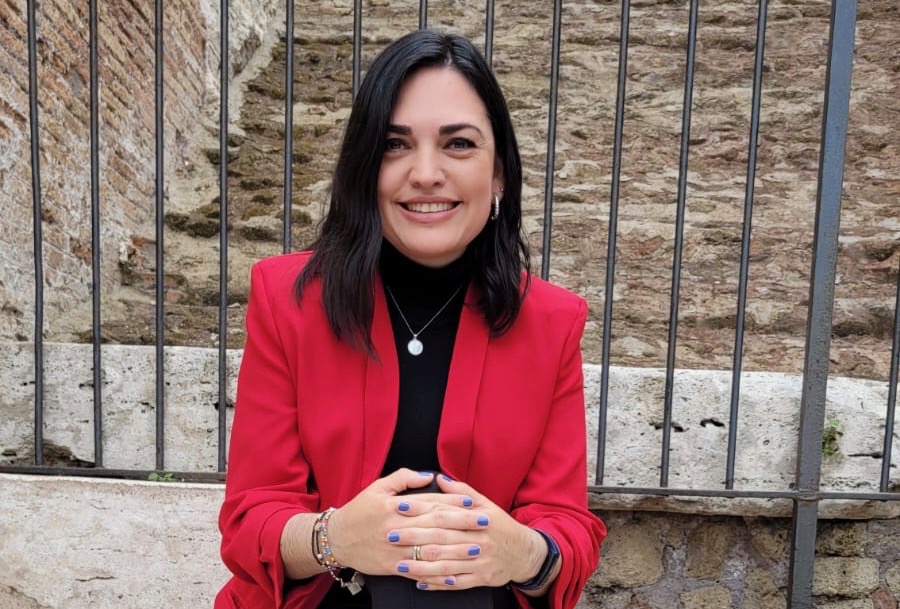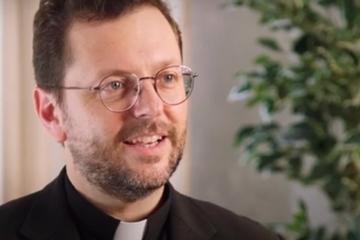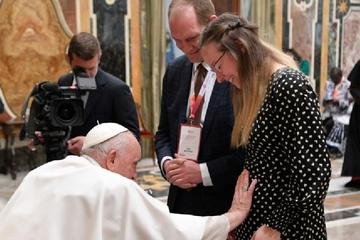
The Lay Centre was pleased to welcome three women from Mexico, who studied for the diploma in safeguarding at the Institute of Anthropology of the Pontifical Gregorian University in Rome this past semester.
In this article, Aida Aguirre Alonoso from Hermosillo, a city in the state of Sonora, Mexico, shares how she began her work in safeguarding in the Church, which stemmed from her clinical practice as a psychologist.
Could you tell us something about yourself: your country, your experience, studies and work?
I am from the state of Sonora in beautiful Mexico. I am 42 years old and married for 17 years. I have three lovely children, ages 12, 11 and 7. Professionally, I am a psychologist. I have three master’s degrees — in family therapy, the Gestalt approach and the pastoral care of prevention in ecclesial environments. I have worked as a psychotherapist for seminarians in the seminary of my diocese for 12 years, and as a consultant for 15 years. Currently, I also serve on the Commission for the Protection of Minors of my Diocese of Hermosillo, promoted by Pope Francis in “Vos estis lux mundi,” a motu proprio published in 2019.
What inspired you to study for the diploma in safeguarding?
As a committed lay woman since the age of 18, I have always served in my church in various apostolates, including with liturgy and as a Eucharistic minister. I learned to love and serve the Church. It was in my clinical practice that I first heard a testimony of a young man who had been abused by a priest and had developed several emotional problems. I couldn’t believe it could happen, and nobody knew or was doing anything about it.
Then I was invited to work at the seminary, and I thought maybe I could find more answers there. It has been a great journey to see God’s call in the lives of seminarians, watching them grow in faith and knowledge, being formed in imitation of Jesus.
I was invited later to establish the Commission for the Protection of Minors of the diocese, and I thought it would be a great way to study the phenomenon of clericalism and abuse of power, which sometimes leads to sexual abuse if it is not stopped. I sum it up in Pope Francis’ “zero tolerance” policy, aimed at stopping these unhealthy ways in the Church.
My main motivation is my children and the world’s children. I want them to have a safe place in the Church. I want them to have a loving and safe experience in the Church, as I did growing up.
The diploma in safeguarding teaches the process and ways to acknowledge risks and to develop protocols to prevent and protect minors and vulnerable people from abuse.
Even though in 85% of cases, abusers are people close to and known to the child, such as a parent, a grandfather or a teacher, 3%-5% are priests. This may seem like a small percentage, but it is still terrible given what a priest represents. A person abused by a priest, not only goes through trauma, but loses faith and their spiritual closeness to God.
God, who suffers alongside the victim, is pushed away because of grief and pain. But he continues alongside those who are broken, holding them and giving them what they need to heal. Safeguarding has become a source of hope for this abuse to stop and to have a safer Church for our children.
We need a worldwide network to strengthen children's mental health in all possible environments — and an important environment is the Church. So, we are trying to create a safe home, a safe church, so this abuse will never happen again. We are starting with prevention, with safeguarding.
How will you put to good use what you learned in Rome when you return home?
The whole purpose of this diploma is to create a worldwide network of people who work in the field of protection and prevention in the Church, to continue helping our classmates and to multiply what we have learned about safeguarding, enabling all our local parishes to strengthen their community life with a safe environment and inviting our priests to embrace further their commitment to the protection of minors and all vulnerable people.
When I return home, I will share what I learned, help people distinguish good behaviour from bad behaviour and know what to do if a relationship feels uncomfortable.
Taking good care of our priests will create a healthier community for eveyone.
What challenges did you face coming to Italy during the pandemic?
Initially, there was a great deal to do. I was very fearful to travel after two years of only remote work. I was worried about catching COVID-19 on the plane. When I got to Italy, I had to spend time in quarantine because I tested positive. But after quarantine, I made it to Rome and I managed to settle in quickly and start classes.
Initially, I was frightened I might fall ill again. So, although I was really keen to get to know the city, I simply went to school and back home for a few weeks.
Could you tell us something about your experience at the Institute of Anthropology of the Pontifical Gregorian University and The Lay Centre?
The Institute of Anthropology was a great discovery. I saw it was well structured. Every class had a clear purpose, and the leaders and teachers were so well prepared. They made every student want to learn and commit to what we were experiencing.
As for The Lay Centre, it is a perfect setting since it felt like home. Being away from our families, this really helped. The students and staff inspired respect and lay achievement, which I so admire.
Why is it so important to spread information about child protection?
Mainly because children are our future. Our boys and girls will be tomorrow’s teachers, priests and parents, and their lives, here and now, and their childhood memories should all be healthy and secure.
No child or vulnerable person should ever be mistreated. From the youngest person to the eldest, everyone should receive God’s love in many ways and especially through the tender and caring ways of the Church.
Now that we know what can happen, we should strive to work with the Church and with those who work in the Church to stop whatever wrong has been done and to start again, with sorrow, but committed to the things that are right, with love and respect.
Aida Aguirre Alonso is a psychotherapist working professionally with adults and adolescents, as well as collaborating with the diocesan commission for child protection and the seminary of the Diocese of Hermosillo.
Photo courtesy Aida Aguirre Alonso


